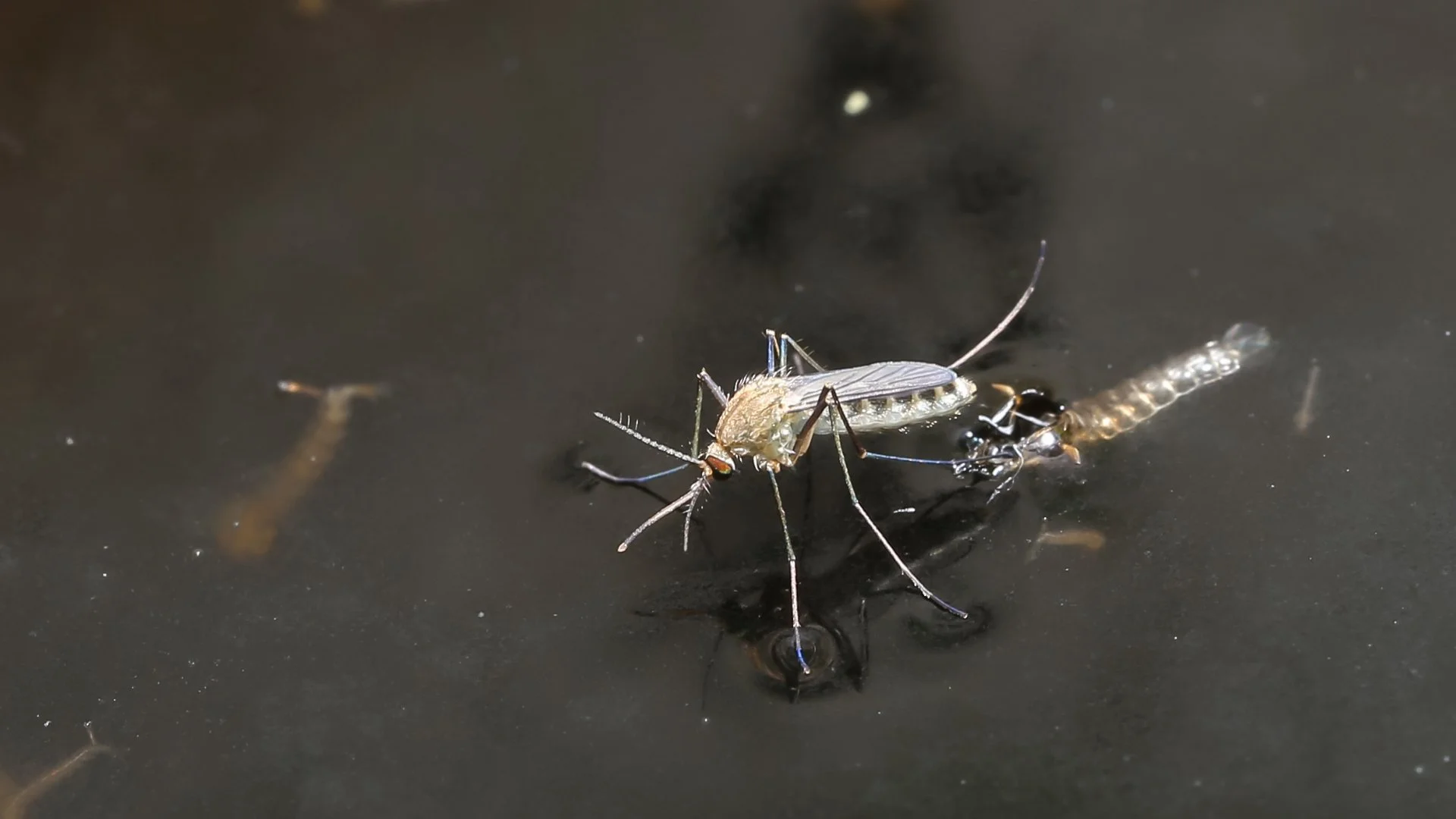Living in Pennsylvania and northern Delaware, we have some of the loveliest landscapes. In October, they come alive with gorgeous fall colors. Unfortunately, the ongoing problems with flea and tick-borne illnesses can put a damper on spending time outdoors. And even if you don’t go to wooded areas, you aren’t necessarily safe. Fleas and ticks could be lurking in your backyard right now – and it only takes one bite to expose you, your family, or your pets to a slew of horrible diseases. Learn how to recognize the symptoms of some common flea and tick-borne illnesses and how pest control services can protect your home.
Flea And Tickborne Diseases You Should Know About
Lyme Disease
Let’s start with the most infamous disease. Lyme disease is the most common vector-borne disease in the United States, but only the black-legged tick can carry this disease. Avoiding ticks at all costs is ideal, but if you do happen to be bitten, and it’s not a black-legged tick, you can at least have some comfort knowing you won’t be exposed to Lyme disease. If left untreated, the infection can spread to the joints, the heart, and the nervous system. As you might expect, this can lead to lifelong health problems and chronic illness. However, if you seek medical treatment early, you can usually treat the condition with powerful antibiotics.
Symptoms vary greatly, depending on how advanced the illness is. Signs of Lyme disease include:lyme disease
- Fever
- Chills
- Headache
- Fatigue
- Muscle and joint aches
- Swollen lymph nodes
- A red bullseye ring around the bite
- Bad headaches
- Neck stiffness
- Droopy facial muscles
- Arthritis
- Severe joint pain
- Irregular heartbeat
- Dizziness
- Shortness of breath
- Inflammation of brain or spinal cord
Tapeworm
What makes tapeworm so tricky is that fleas can be brought in quite easily by hitchhiking on your dog or cat. And once inside, it doesn’t take long for them to infest the place. Homes with young children or pets are most likely to come in contact with this disease. Exposure to tapeworms occurs when a human or animal swallows a flea infected with tapeworm larvae. Since pets clean themselves with their tongues, and small children will put things in their mouths, they could accidentally swallow a tapeworm without meaning to. Adult worms form bodies that have segments, called proglottids, which break off into the digestive tract and be pooped out. The bodies are specifically designed to leave one infected host and seek out new ones, like perforated paper that is easy to tear off. You can tell your pet or child has tapeworm by looking at their feces. If infected, you will notice something that looks like bits of rice in their stool.
Tularemia
Like tapeworm, tularemia can cause health issues for both pets and humans. Smaller rodent pets like bunnies, rats, mice, or guinea pigs are more susceptible to tularemia. You or your pets can be exposed to this illness when coming in contact with an infected animal. Tularemia is passed through the bite of ticks, and it can also become airborne in dust particles. Anyone who contracts tularemia will have a fever, but you will develop an ulcer near that site if you specifically received the illness through a bite. Typically, lymph nodes will swell, most often in the armpit or groin. Like Lyme disease, tularemia only gets worse the longer you go without seeking medical treatment. In the worst-case scenario, bacteria can enter the bloodstream and wind up in your lungs.
Murine Typhusflea bites on arm
Also known as “flea-borne typhus,” this disease is, you guessed it, spread by fleas – though not through their bites. Disgustingly, it’s spread through their feces. When you come in contact with flea fecal matter, the bacteria can get into open wounds, where it will swiftly overwhelm your immune system. It’s also possible to contract murine typhus by breathing in flea poop or rubbing your eyes after coming in contact with it. Now, you might be thinking: why would anyone rub flea poop in their eyes? This can actually happen easily. You let your dog into the yard, and they get fleas on them. You don’t notice at first, giving the fleas time to do their thing. After a few hours, the flea poops, you pet your dog, soon after, rub your face, and boom. Flea dirt – the industry term for flea poop – could also be on your carpet or rug. Dogs love to roll around on the floor, and in so doing, they might accidentally deposit flea dirt into the carpet. The next time you vacuum your home, all that flea dirt could get kicked up and pushed into the air. Like many of the diseases we’ve discussed today, murine typhus can quickly get much worse if left untreated. It can severely damage your liver, kidneys, heart, lungs, and even your brain.
Symptoms of murine typhus include:
- Fever and chills
- Body aches
- muscle pain
- Decreased appetite
- Nausea
- Vomiting
- Stomach pain
- Cough
- Rash
Why You Need The Expertise Of A Pest Control Company
If you weren’t aware, Pennsylvania is at the very epicenter of the tick and Lyme disease epidemic. The only guaranteed way to protect yourself, your pets, and your family from these horrible diseases is through our perimeter pest control spray. We’ll spray the exterior of your home as well as eavestroughs and gutters to make sure any breeding grounds are wiped out before they have a chance to hatch. This protective barrier will last for many weeks before reapplying, and it even works after rainfall. While bug repellants are always advisable if you’re hiking in a natural area, you can give yourself the ultimate protection by calling tick control services to treat your yard. That way, you’ll have peace of mind, and you can ditch the smelly bug repellant.
Get Flea And Tick Control Near Wilmington
The pros at Delaware Valley Turf have many years protecting homes from fleas and ticks. Our flea and tick control will eliminate these dangerous pests no matter which part of the life cycle they’re currently in. And it lasts for weeks before reapplying, which means future bugs can’t take up residence. Reclaim your backyard and enjoy peace of mind once again! To learn more about our treatments or to schedule an appointment, you can reach us by phone at (610) 328-4170 or online through our contact form. Don’t forget to check our blog page next month for more info on controlling pests and maintaining a beautiful yard. Don’t forget to like us on Facebook and follow us on Instagram!






Comments (0)
Thanks for your comment!
Thanks for your feedback! Your comments have been successfully submitted! Please note, all comments require admin approval prior to display.
Error submitting comment!
There is a problem with your comment, please see below and try again.